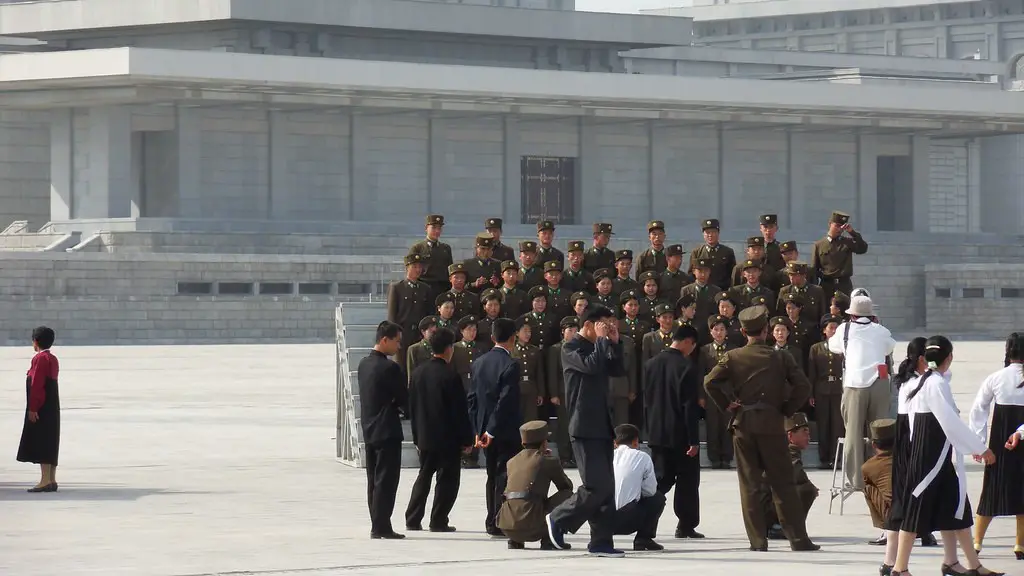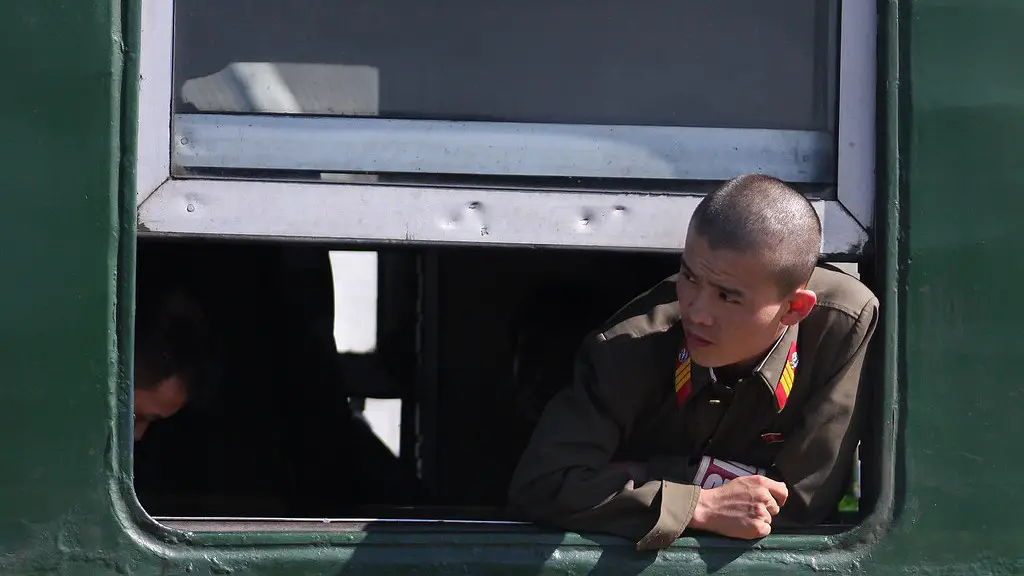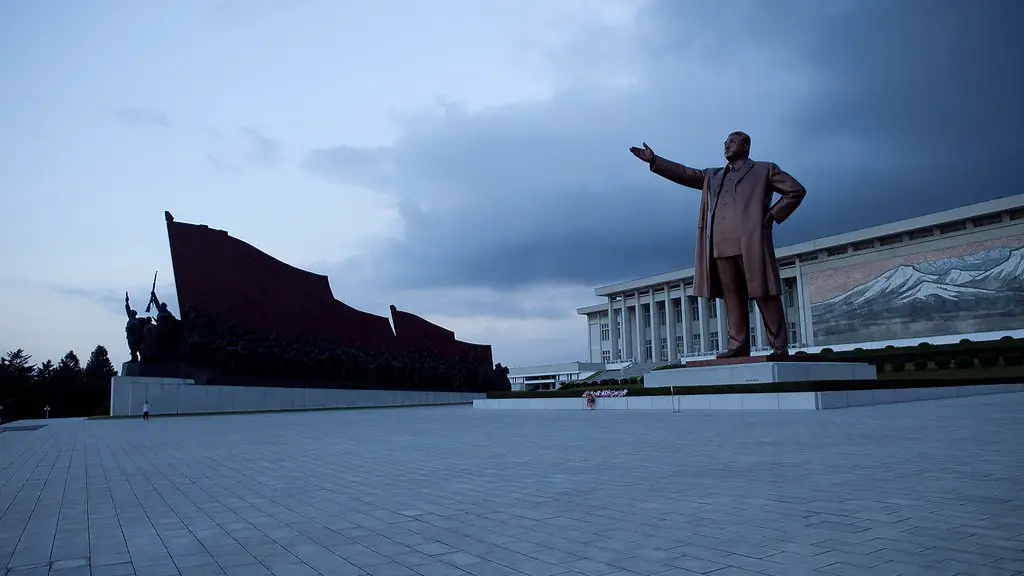For those of us living in countries of relative freedom and democracy, North Korea may be seen as one of the most cruelly oppressive regimes in the world. There is little understanding of what daily life is like for its citizens and how their lives are governed. To truly appreciate the enormity of life in North Korea, it is important to gain a greater understanding of what really goes on in this mysterious and heavily guarded country.
North Korea is officially known as the Democratic People’s Republic of Korea and is a single-party state under the complete control of the ruling Kim dynasty. The government has total control over the media, ensuring news outlets only report positive messages about the regime, and the internet is blocked for anybody outside of the ruling elite. All aspects of life including employment, education and even housing allocation, is regulated by the state.
As private businesses are illegal, citizens must rely on government-controlled companies for employment. Rationing of food, fuel and electricity is a regular feature for many citizens and poverty is common with up to 70 per cent of the population living in deprivation. The state also monitors the movements of its citizens and the ‘three generations of punishment’ system is used to control any form of dissent. Those guilty of a perceived offence are locked away, with their spouse, children and grandchildren also suffering imprisonment.
A lack of freedom in North Korea is further illustrated by its low ranking in measures of human rights. According to Freedom House, people in North Korea enjoy no civil liberties whatsoever, with torture and cruel punishments used regularly to enforce its rules. The only legalised religion is a quasi-religious personality cult, constructing the claims of the supreme leader and the original founder of North Korea, Kim Il-Sung, as absolute.
The Kim family have maintained a grip on power for several decades with the current leader, Kim Jong-Un, the third-generation of the dynasty. His grip on power is further demonstrated by his continued efforts to increase the state’s nuclear capability and the deployment of anti-ballistic missiles in recent times. North Korea’s nuclear program has resulted in a series of United Nations sanctions which has continued to damage its economy further.
Religious persecution is a further stark reminder of how North Koreans live under a regime of fear and control. Since 1948, religious activity is strictly illegal and those found practising Christianity or other faiths have been subject to years of prison and hard labour. Reports in 2018 suggested that up to 70,000 Christians face imprisonment in labour camps punishable by death.
Conditions inside Prison Camps
The abuses of the North Korean government are further highlighted by the existence of prisoner camps which are used to house political prisoners and those accused of religious activities. Over one hundred camps are believed to be in operation containing up to 200,000 citizens. Unscrupulous conditions have been reported by former inmates, including overcrowding, undernourishment, lack of medical services, forced labour and torture.
The United Nations estimates between 20,000 and 300,000 people have been held in North Korean prison camps over the last 50 years, with countless thousands of people having died in the camps during that period. An investigation by the United Nations Human Rights Commission concluded that prison camps may constitute a ‘crime against humanity’, with governments overseas condemning North Korea and bringing their own sanctions against the country.
North Korea’s Relations with Other Nations
Relations between North Korea and other nations is strained due to long-standing security concerns, particularly with South Korea and the United States. Since the Korean War, the two nations have provided military support for each other and have often been in opposition to North Korea. Long-term hostility of the Kim dynasty has failed to improve relations with these countries and the international community.
North Korea has become increasingly isolated over recent years, with the United States, South Korea and Japan all launching economic sanctions against the country in 2014. In 2018, the US imposed a total economic and oil embargo designed to stifle the North Korean economy. Relations with North Korea remained strained until 2018 when Kim Jong Un made diplomatic overtures to South Korea, leading to a meeting of world leaders at South Korea’s Peace House in April of that year.
Talks between North and South Korea, as well as the US, continued up until the denuclearisation talks between Kim Jong Un and President Trump which took place in Singapore in June 2018. While these earliest talks were initiated with the aim of discussing denuclearisation, Pyongyang has consistently failed to follow through on their commitment to disarm and the talks eventually broke down in 2019. However, America and South Korea have sustained ongoing discussions over sanctions relief and denuclearisation.
Censorship and Limiting of Rights
The ruling class in North Korea, particularly within the ruling Workers’ Party of Korea, has long imposed strict controls over the media, the economy and all aspects of the citizens’ lives. Basic rights such as freedom of speech or the press have long been denied with media outlets only permitted to broadcast loyalist messages and strictly legimitized opinions. Even unauthorized access to the internet, let alone access to overseas websites and platforms, is subject to harsh punishments.
Citizens are regularly monitored, with individuals arrested and thrown into interrogation facilities. Reports of torture and inhumane treatment continue to this day, with the UN Commission of Inquiry on Human Rights in the DPRK reporting numerous examples of how North Koreans are subjected to arbitrary arrest, torture, cruel punishments and a lack of due process. Everyday North Koreans must conform to the regime’s ideology and their acts subject to close inspection.
Political and Cultural Repressions
The political landscape in North Korea has long been dominated by the Workers’ Party of Korea, a heavily regimented form of communism which operates outside the rule of law and is said to be the oldest ruling party in the world. Those who oppose the party or even express an opinion against its ideology are subject to arbitrary detention and torture. The cultural aspect of the nation has been equally as restrictive – with performance art, music and literature all tightly controlled by the government.
Censorship of the press is commonplace in North Korea, with reports flooded with only pro-regime messages and the presence of the Korean Central News Agency, or KCNA, which serves as the sole source of news permitted into the public domain. This prevents any independent voices being heard and any dissent silenced. The state continues to go to extreme lengths to silence critics, even as far as to impose travel restrictions on opponents.
North Korea in the Modern Age
As of 2020, the relationship between North Korea and South Korea is strained with the lack of progress in denuclearisation talks and continuing military border disputes. The relationship between North Korea and the US remains tense with the start of the new Trump administration, with American foreign policy regarding Pyongyang still unclear. The citizens of North Korea still struggle to maintain a basic standard of living and remain subject to a state of fear and uncertainty.
However, a recent loosening of tension with South Korea has led to a surge in South Korean businesses and investment in the North, with some signs of a growing middle-class appearing. Remittances from individuals abroad, particularly South Koreans, have helped support local businesses and provided vital funds to the economy.
International aid organisations also remain committed to improving human rights and living conditions in North Korea and are permitted to operate in the country. In the last twenty years, these organisations have provided food, education, and healthcare to many citizens and lobbied for access to their services. Efforts have also been made to tackle environmental damage with international collaboration in conservation initiatives.
Conclusion
Predicting the future of North Korea is a complex matter with the nation’s history of political, economic and social oppression as well as a rapidly changing international landscape. Its economy is still volatile and underdeveloped and its citizens continue to face a daily life of intense scrutiny and limited freedoms. How the nation will progress into the future is uncertain but there are small signs of hope, particularly the thawing in relations and cooperation between the North and South.




